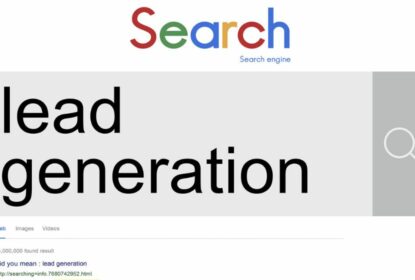Often corporations forget that their consumers like to be treated like a friend, not an acquaintance. Building a reliable strategy to approach your target audience will generate more meaningful interactions. No matter the industry you work in, offering personalized customer engagement adds value to your service. In this blog, we’ll explain why engagement matters, even if it does not bring in revenue instantly to your business.
What is Customer Engagement?
When it comes to the term “engagement” with consumers, it means “the depth of the relationship a customer has with a brand.” Individuals want to feel as though they are more than just a number to a business’s sales strategy. Once a customer feels an emotional connection to a brand, they become loyal. As this loyalty grows, they start to promote the brand beyond just buying more products. For companies to achieve strong consumer bonds, they must do these five things.
- Get their point across
- Add personal tones to communication
- Make relevant interactions
- Consider cultural differences
- Speak often
People crave genuine interactions that are not mass-produced messages. Adding personal tones, addressing people on a first name basis, staying up to date with current life events, and respecting individuals’ cultural differences will influence your engagement with a consumer to be more powerful.
The reason why customer engagement is so vital to success in the business world is that it offers positive customer experiences through your brand. This engagement lets you understand who you are talking to and what needs consumers want you to address.
Types of Consumer Engagement
We have all become experts at dismissing messages that are not meant for us. Adopting a personalized tone to your messages can make a difference in improving customer relationships overall. At the bare minimum, addressing people by their name will make things feel more personal. Replace company logos with photographs of real people to help make a personal connection.

Here are some different ways to engage with customers, both physical and digital:
Social Media
- Customer service via social media outlets
- Uncover patterns in customer behaviors
- Respond to audiences’ comments
- Stay up to date with clients most recent activities
- Follow prospects’ pages
- Promote other business partners
- Ask for consumer feedback/questions on posts
Content Creation
- Creating video
- Podcasts
- Vlogging
- Fan community participation
- Live videos
Physical Items
- Written notes
- Merch gifts
- Interactive elements
- Product samples
For instinctual connections to occur, a combination of approaches needs to be taken into consideration so that the target can interact with several sensors simultaneously. Understanding how human sensors and actuators operate will help your strategy for engagement be more accurate.
Sensors such as sight, touch, hearing, and perception enhance human interest. Actuators are triggers, compound reparations, multimedia feedback, and integrations that increase human attention. The goal is to offer a memorable experience to the audience in person or remotely.
Proactive and Personalized Communication
Once a business proactively understands the customer experience, the personalization of communication is simple. Being on top of relevant information about the client’s daily life bridges the channel of connection. Staying organized with a client’s personal and work-related data will tailor certain situations to conversations. By demonstrating a commitment to improving your client’s daily reality, your customers will feel valued, boosting brand loyalty.
The digital world offers consumers a wide range of choices than they’ve previously experienced. In customer relationships today, most value is gathered over a period of time through a cycle of commitment and recommitment to one another. Customer loyalty now focuses on long-term growth and success, providing existing customers enough attention for success well into the future. Oracle states that “95% of buyers choose the company that provides ample, relevant information to guide them through all stages of their buyer journey.”
Benefits of Customer Engagement
To improve customer loyalty, a brand must provide unique experiences and interactions that stick in the mind of a prospect. Consumer activity goes beyond just the transaction. They spread brand awareness through either word of mouth or customer-to-customer interaction.
According to Ring Central, “By the end of 2020, customer experience will be the number one reason people choose to do business with a company.” With high-quality customer satisfaction, consumers will return the favor by providing positive recommendations to others. There are four key ways to track whether or not your audience is receiving your engagement correctly:
- Social Media Interactions Increase – A great indicator of if your customers are interested in connections is through your social media platforms. The numbers don’t lie when it comes to social media facts. Check out social insight sections for data on audience engagement, the number of likes you are getting, and even demographics.
- Your Reviews – Consumers love to leave helpful feedback for the community to read. Stay up to date on replying to both good and bad comments. Reviews online will help you judge your brand from another perspective. Think of where you would go to check out reviews like Google Reviews, Facebook, and Yelp.
- Happy Customers – Customer surveys help you figure out how engaged and happy clients are. Keep surveys short and simple for easy navigation. Your company can track the number of survey responses you get back, as well as asking them to rate how happy they are with your services.
- New Business – Find out how new clients heard about you in the first place. Make them see that they already hold value in your eyes from the start.
Their Success is Your Success
Customer success is the process of having a deep understanding of who your customer is. Then your brand must use this valuable knowledge to act and deliver throughout the customer’s journey. For business growth to continue as an enterprise, it depends on whether you’re able to nurture the customer relationship to be long-lasting.
Encouraging mutual growth requires you to have a deep understanding of your customers’ needs now and in the future. Their business goals provide you with engagement centered objectives. Make sure to gather and analyze data to date progressions through their customer journey. Using factual information will allow timing engagement messages with individuals for them to see the new value.
The goal is to capture your audience’s attention enough to make them want to do business with you continuously. As times change, your business must adapt to keep attracting people into your market. Come up with a customer engagement strategy that will increase interaction. With just a little commitment to engage with others, you can see a plentiful amount of return. So, ask yourself, are you engaging with your customers as effectively as possible?










